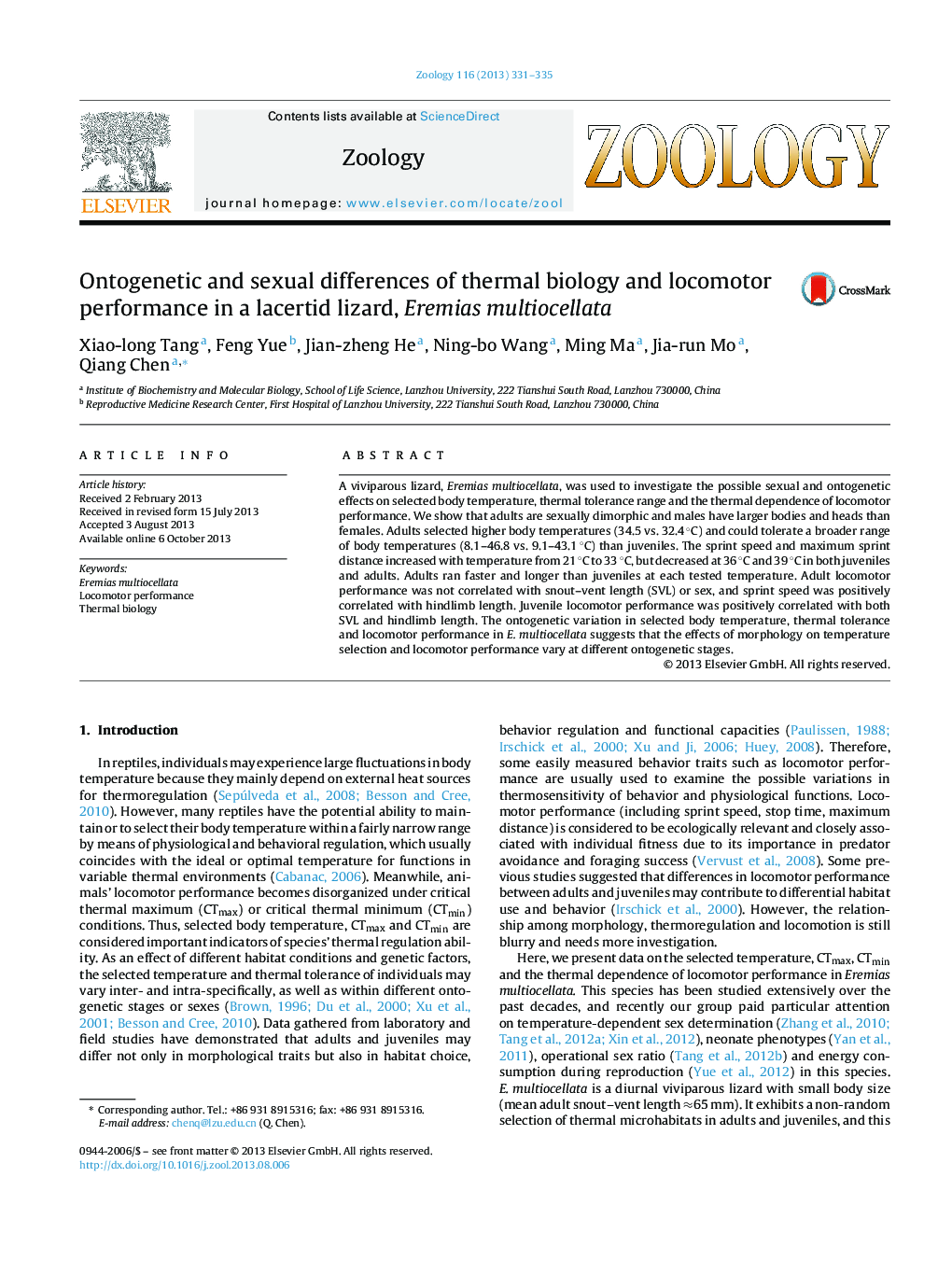| Article ID | Journal | Published Year | Pages | File Type |
|---|---|---|---|---|
| 2791069 | Zoology | 2013 | 5 Pages |
A viviparous lizard, Eremias multiocellata, was used to investigate the possible sexual and ontogenetic effects on selected body temperature, thermal tolerance range and the thermal dependence of locomotor performance. We show that adults are sexually dimorphic and males have larger bodies and heads than females. Adults selected higher body temperatures (34.5 vs. 32.4 °C) and could tolerate a broader range of body temperatures (8.1–46.8 vs. 9.1–43.1 °C) than juveniles. The sprint speed and maximum sprint distance increased with temperature from 21 °C to 33 °C, but decreased at 36 °C and 39 °C in both juveniles and adults. Adults ran faster and longer than juveniles at each tested temperature. Adult locomotor performance was not correlated with snout–vent length (SVL) or sex, and sprint speed was positively correlated with hindlimb length. Juvenile locomotor performance was positively correlated with both SVL and hindlimb length. The ontogenetic variation in selected body temperature, thermal tolerance and locomotor performance in E. multiocellata suggests that the effects of morphology on temperature selection and locomotor performance vary at different ontogenetic stages.
